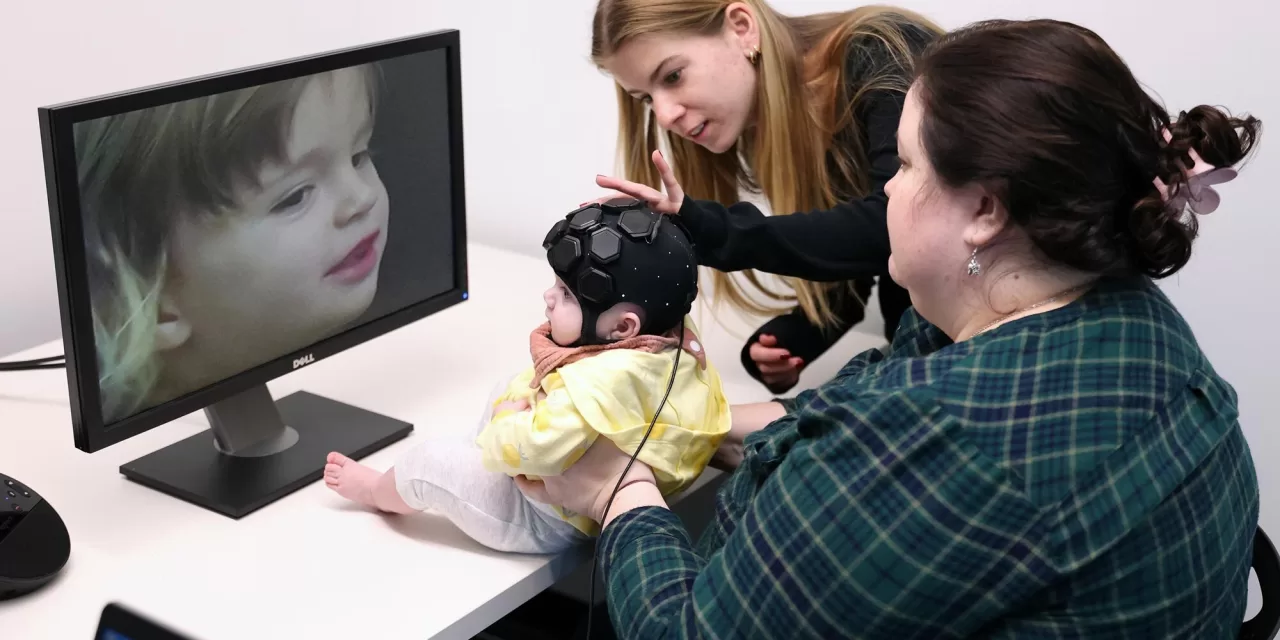A recent study conducted at the University of Virginia’s Baby Lab is shedding light on a fascinating question: Can brain scans predict a child’s future social skills? Olivia Allison, a psychology graduate student, along with Baby Lab director Tobias Grossman, analyzed data suggesting that early brain activity in infants may be linked to their social behaviors as toddlers.
Decoding Infant Brain Activity
The research builds upon previous findings that suggest engagement in a specific part of the brain—the dorso-medial prefrontal cortex—while viewing happy faces may be an early indicator of social tendencies later in childhood.
Last year, Allison and Grossman examined data originally gathered at the Max Planck Institute for Human and Cognitive and Brain Sciences in Germany. The study involved infants, aged 11 months, who were shown images of human faces expressing different emotions. Using functional near-infrared spectroscopy (fNIRS), a noninvasive imaging technique, researchers measured oxygenated blood flow to different regions of the brain to determine levels of engagement.
“The babies saw faces with different expressions—some smiling directly at them, others smiling but looking away, and some frowning with varying eye contact,” Allison explained. “The technology helped us see which areas of the brain were most active in response to these stimuli.”
Predicting Toddler Socialization
As part of the study, researchers followed up with the infants’ parents when the children reached 18 months. Parents answered questions about their child’s social behavior, including how frequently they engaged with large family gatherings and their interest in playing with different people.
The findings, published in the journal Imaging Neuroscience, revealed a correlation between brain activity at 11 months and social behaviors at 18 months. Specifically, infants who showed greater engagement in the dorso-medial prefrontal cortex when viewing happy faces tended to be more socially active as toddlers.
The Future of Social Development Research
While these findings provide intriguing insights into early brain development, Allison emphasized that many factors contribute to a child’s social abilities. “A really big question that, at least I ask myself, is, ‘How do we become who we are?’” she said. “This research is just one piece of the puzzle.”
The study opens new avenues for understanding social development and could lead to future research on early interventions for children at risk of social difficulties. However, experts caution that brain scans should not be viewed as deterministic but rather as one of many tools in developmental psychology.
Disclaimer
This article discusses findings from early-stage research and does not suggest that brain scans can definitively predict future personality traits. Environmental factors, upbringing, and individual experiences all play critical roles in social development. Parents and caregivers should consult with child development experts for personalized guidance.
As research in neuroscience continues to evolve, studies like this offer valuable glimpses into the intricate workings of the human brain—starting from infancy.












